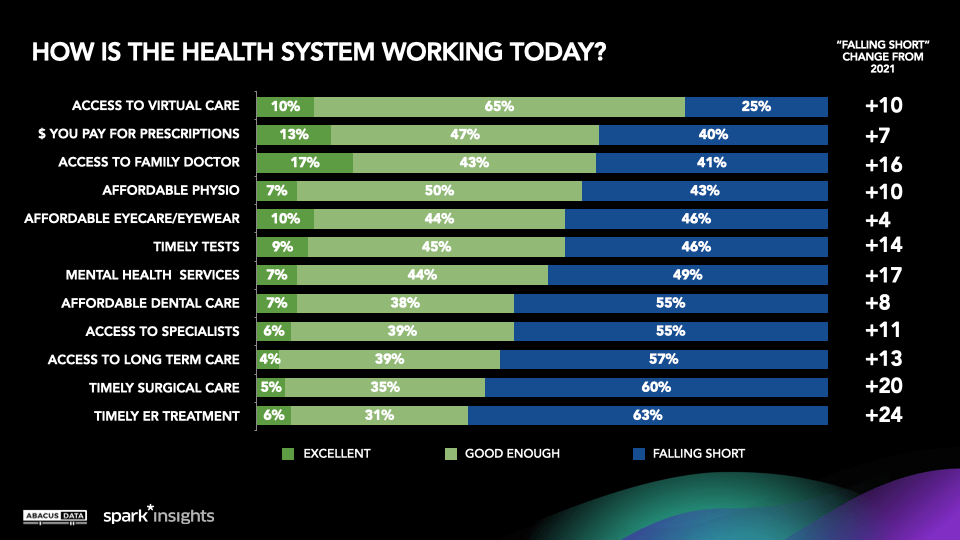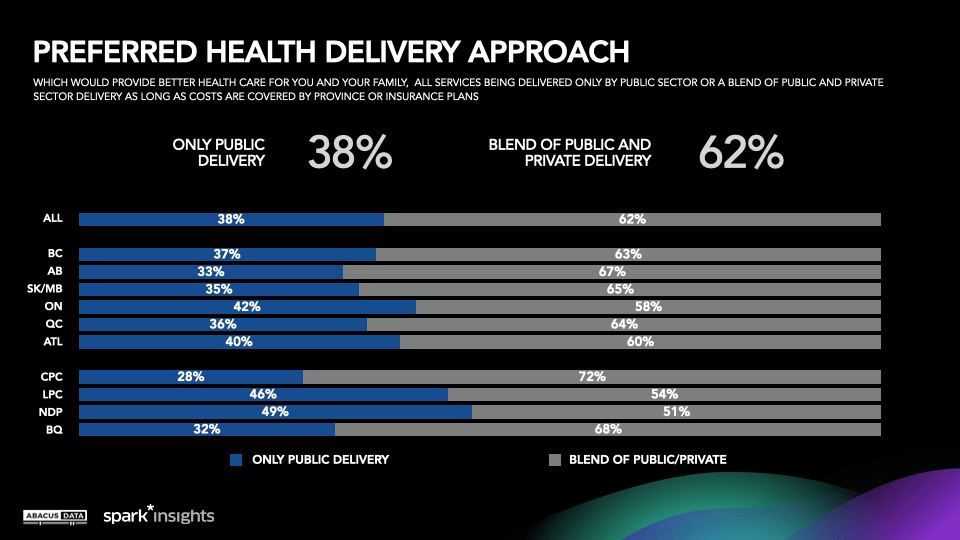THE HEALTH CARE SYSTEM & PERFORMANCE OF GOVERNMENTS
Barely half (54%) of Canadians say the healthcare system is working well enough to meet their needs. Two-thirds say is it not working well enough across the country, or in their province. Only Quebec finds a majority giving passing grades to their provincial government.
Since 2021, negative ratings for both the federal government (up 21 points to 49% poor/very poor) and provincial governments (up 15 points to 48% poor/very poor, have grown significantly.
WHAT’S WORKING WELL; WHAT’S WORKING POORLY
Canadians are most unhappy about access to specialists, long-term care, surgical care, and timely emergency room care. Negative feelings about these topics are up by more than 10 points since 2021.
Canadians are more satisfied with access to virtual care, and with the amount that they pay for prescription drugs, physiotherapy, and affordable eye care.
While a majority (60%) say their access to a family doctor is excellent or good enough, 4 in ten say the system is falling short of their needs in this area. Unhappiness with this aspect of health care is up 16 points since 2021. Alongside sharp rises in unhappiness around access to a family doctor, surgical care, long-term care, and emergency care, we also see a 17-point increase in unhappiness with access to mental health services. Today, 49% say the system is falling short of their needs. Problems in this area are most acutely felt by younger Canadians.








